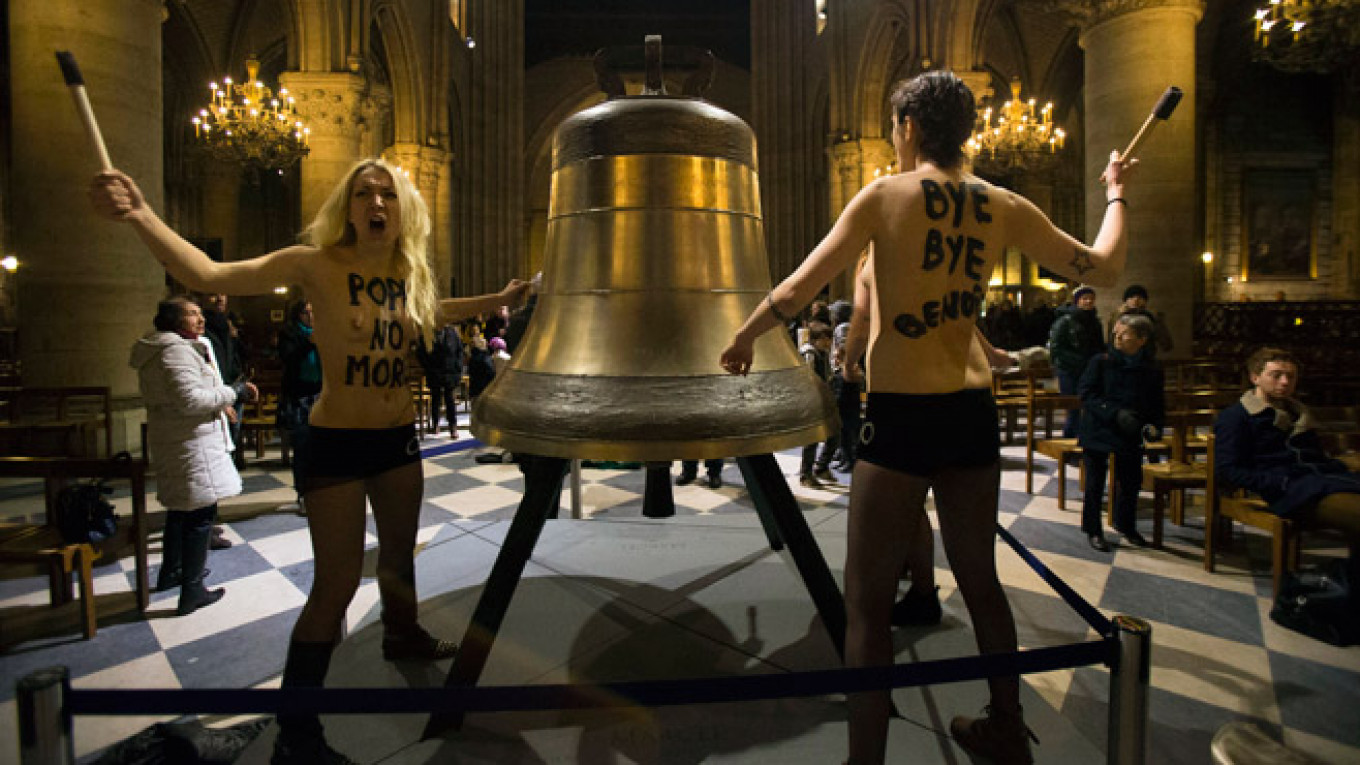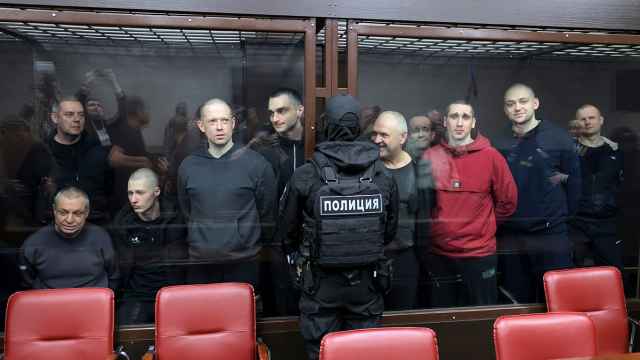Russia's Foreign Ministry blasted France for its "double standards" following a Parisian court's decision to release nine Femen activists who stormed the Notre Dame cathedral last year to stage a topless protest against the pope.
In February 2013, members of Femen — a Ukrainian feminist group known for its shocking, frequently topless protests against high-level political and church leaders — burst into Paris' legendary Notre Dame cathedral. In an effort to protest the Catholic Church's stance on gay marriage, the young, semi-nude women banged on an enormous church bell and staged a mock resignation of then-Pope Benedict XVI.
French prosecutors had claimed that the activists caused damage to the cathedral's bell. The court held to the contrary last week, finding that the women had covered the wooden sticks they used to hammer the bell with felt, providing evidence that they did not intend to cause damage, the activists' lawyer Michael Ghnassia told Radio France Internationale.
Not everyone walked away guilt-free, however. The court found that three of Notre Dame's security guards had used excessive force in halting the protest. The guards were handed suspended fines of 300 euros, 500 euros and 1,000 euros, respectively.
Russia's Foreign Ministry referred to the decision as a "mockery of common sense," in a strongly worded statement issued Friday.
The French court ignored the values of religious devotees for the sake of political expediency, the statement read, adding that churchgoers were surely appalled by the desecration of one of France's most venerated cathedrals.
The statement described as ironic the French authorities' willingness on the one hand to overlook the abuse of its country's religious shrines, and on the other hand to join the West in throwing a collective tantrum over "Russia's mythical invasion of Ukraine."
"This is nothing other than a case of double standards," the statement concluded.
The facts of the case closely paralleled the 2012 Pussy Riot scandal. In February of that year, a group of activists belonging to Russian feminist collective Pussy Riot stormed the altar of Moscow's Christ the Savior Cathedral. Three were ultimately arrested and sentenced to two years each in penal colonies, though one of the three was released after only a few months, and the other two were amnestied last December.
The trial and sentencing were met with vocal resistance from advocacy groups and political leaders in the West, with many critics suggesting that the ruling would stifle free-speech rights.
A Message from The Moscow Times:
Dear readers,
We are facing unprecedented challenges. Russia's Prosecutor General's Office has designated The Moscow Times as an "undesirable" organization, criminalizing our work and putting our staff at risk of prosecution. This follows our earlier unjust labeling as a "foreign agent."
These actions are direct attempts to silence independent journalism in Russia. The authorities claim our work "discredits the decisions of the Russian leadership." We see things differently: we strive to provide accurate, unbiased reporting on Russia.
We, the journalists of The Moscow Times, refuse to be silenced. But to continue our work, we need your help.
Your support, no matter how small, makes a world of difference. If you can, please support us monthly starting from just $2. It's quick to set up, and every contribution makes a significant impact.
By supporting The Moscow Times, you're defending open, independent journalism in the face of repression. Thank you for standing with us.
Remind me later.






